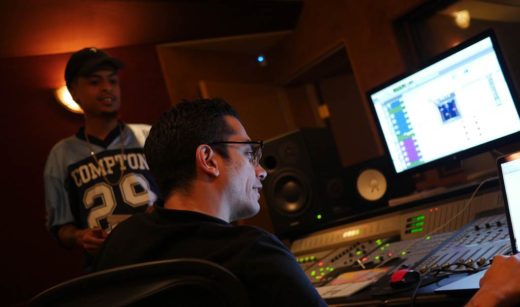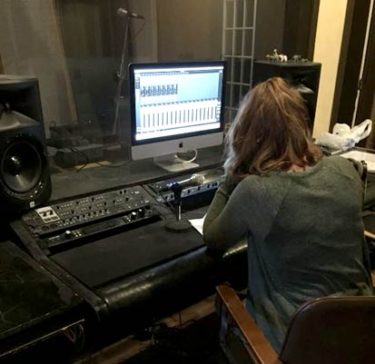I always say when I’m working with students, “I never worry about the story that I’m writing. I worry about the story I could have written if I’d made better choices.”…This is a difficult thing because most beginning screenwriters are not used to creating something from nothing—because that’s what writers do, they are in the creation business.
I always refer to that poem by Robert Frost, which is such a simple poem: “Two roads diverge in a wood…” You know the story of that poem: I, for having taken one, am different for it. You go down that fork in the road.
I wanted to be a doctor…So what happened was I got in the waiting list of four or five medical schools like Albert Einstein, Stony Brook, and Downstate, New York Schools, and I didn’t get in because I messed up on my MCATs. So I was going to apply the next year. And guess what? During that time, I wrote a screenplay, and I got an agent. And I never went back…If I would have gone to medical school, well, I wouldn’t be here.
And the same thing I say to them in their stories; there are choices that make a difference like the forks of your road in your story. And there are choices in developing your screenplay that are meaningless, like the height, the weight, the backstory. You have to know what choices you need to find your story and really make it work, like the forks in your life. The forks, for example, of who the main characters [are] and certain key dramatic climaxes in the movie. And if you don’t have that, you don’t have the foundation of your house or your story. And as I say to students all the time, “You can’t build a house from the roof down. It will collapse on your head. You’ve got to build it from the foundation up.”
LESSONS FROM ROCKY
Anybody can look at the movie
Rocky and realize, for example, that the main character in the movie is Rocky, a down-and-out fighter who gets the chance fight for a championship in the world…And [you] realize how great the story is because the choices have been made for that writer because you’re looking at the finished product. But try starting with a blank page, not seeing the final product, because that’s your job. I know if I were writing that screenplay, I could have easily made the main characters Rocky and Adrian, and then been allured by the choice of making a down and out fighter fall in love with a girl that works at a pet shop. And, through love, they find success and happiness.
Now, I’m not saying that’s not a good story. What I’m saying is, is that the
best story? Because if I looked around a little bit more, I found the right main character with the right conflict, I would have found Rocky. And you know what? I [could] go down that fork in the road and write that story about Rocky and Adrian [and] once I’m on that road and I can take a left on that fork, I can flip it, loopty loop it, and turn it upside down. I’m still on that road…You’ve got to know exactly what makes a difference [to the story] and what doesn’t, because otherwise, you’re wasting your time.
CHARACTER AND CONFLICT
There is a direct relationship between character and conflict. As a simple example, what if I start with the movie of
Rocky with a fighter, because we’ll agree that that conflict of
Rocky is great, right? But…I can ruin that conflict in two seconds. What if I start the movie where Rocky is not an out-of-shape fighter, but Rocky is a fighter that can do 50,000 pushups, takes Vitamin B12, is in great shape, is like this wonderful person, and now that fighter gets to fight for the championship of the world? If that’s how I put his character, do you think there’s a conflict now? I just destroyed the conflict. So your choice of your character has as much as to do with the establishment of the conflict as the conflict itself.
THE ONE QUESTION
Then, ultimately, really what it comes down to is very simple: You have to realize that there’s only one main conflict in the movie, and you really have to focus on that one main conflict. All the other conflicts are inconsequential because what you’ll find out is that that main conflict, that one conflict, you could always identify because it because it poses itself as a question in the movie. That question is what lasts the whole movie. So for example, in
Rocky, if you watch the beginning of the movie, 20 minutes into the movie he gets the chance to fight in the championship of the world. And all of a sudden, a question arises that is the conflict in the movie: that is,
Can Rocky get himself into shape physically and mentally and win the championship of the world? When do we answer that question? At the very last scene of the movie. That question is the conflict of the movie.
There can only be one question that is the main conflict of the movie. That is what drives the story…that is not to say there aren’t other questions, but those other questions are subplot. Will Rocky marry Adrian? Will Paulie get into the mob? Will Nick become his trainer? Will Paul agree? Those are all secondary questions; those questions don’t last two hours. So you have to focus on the one question that can last two hours…The question of
Lord of the Rings: Can Frodo throw that ring down Mount Doom and destroy Sauron? When do you answer that question? At the end of the movie. Can Bruce Willis help this boy who’s scared of his own shadow in
The Sixth Sense? When do you answer the question? At the end of the movie. Can Erin Brockovich win this case? When do you answer the question? At the end of the movie.
I can go on and on and on…The only reason you’re watching that movie is to find out the answer to that question….[So] I first look for the character and see the question, and then I really ask myself, “Can that question hold my interest for two hours?”…If you answer that question in the middle of the movie, the movie is over.
* * * * *


 Recording Connection student Kayla Parker (Atlanta, GA) has been having a whirlwind of a time at Twelve Music Group: “I’m just in disbelief at all the opportunities the Recording Connection has already provided me…The main thing I take away from Twelve every single time is to never limit yourself and always continue to grow [and] that the people around you are just as important to your career as your actual music is. How you nurture each relationship will determine how successful you are…I have been working with two of my mentors; both have taught me so much so far. My second mentor is Rondal “Caveman” Rosario… He has one Grammy under his belt with singer/songwriter Ashanti for the song titled “Rain On Me.” With his experience, combined with my main mentor “CAT” [Chris Taylor], I am learning so much words can’t even describe. I am looking forward to everything that’s about to take place.”
Recording Connection student Kayla Parker (Atlanta, GA) has been having a whirlwind of a time at Twelve Music Group: “I’m just in disbelief at all the opportunities the Recording Connection has already provided me…The main thing I take away from Twelve every single time is to never limit yourself and always continue to grow [and] that the people around you are just as important to your career as your actual music is. How you nurture each relationship will determine how successful you are…I have been working with two of my mentors; both have taught me so much so far. My second mentor is Rondal “Caveman” Rosario… He has one Grammy under his belt with singer/songwriter Ashanti for the song titled “Rain On Me.” With his experience, combined with my main mentor “CAT” [Chris Taylor], I am learning so much words can’t even describe. I am looking forward to everything that’s about to take place.”
 Just weeks into her apprenticeship, Libby Belcher (Amarillo, TX) is getting first hand insight into audio engineering at Animal Kingdom Recordings with her mentor Nick Schmitto: “This week we mixed and mastered several songs for different artists of different genres. I also observed my mentor while he created beats for use in hip hop songs. My mentor is working on my first single as well and showing me all the details that go into making a song from start to finish.”
Just weeks into her apprenticeship, Libby Belcher (Amarillo, TX) is getting first hand insight into audio engineering at Animal Kingdom Recordings with her mentor Nick Schmitto: “This week we mixed and mastered several songs for different artists of different genres. I also observed my mentor while he created beats for use in hip hop songs. My mentor is working on my first single as well and showing me all the details that go into making a song from start to finish.”



